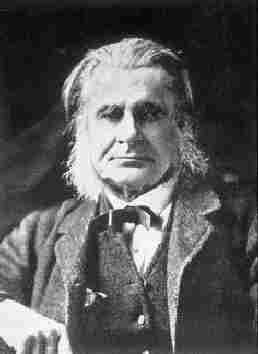


|
Webster defines agnosticism as "the view that any ultimate reality (as God) is unknown and prob. unknowable;" and broadly an agnostic as "one who is not committed to believing in either the existence or the nonexistence of God or a god." I prefer the definition offered by Thomas Henry Huxley, pictured to the left, who coined the word in 1869. In 1889, he refined his definition in a way that I love: |
Change Is The Only Constant, coupled with Know Thyself, make a potent combination in our search of the answer to the philosophical questions.